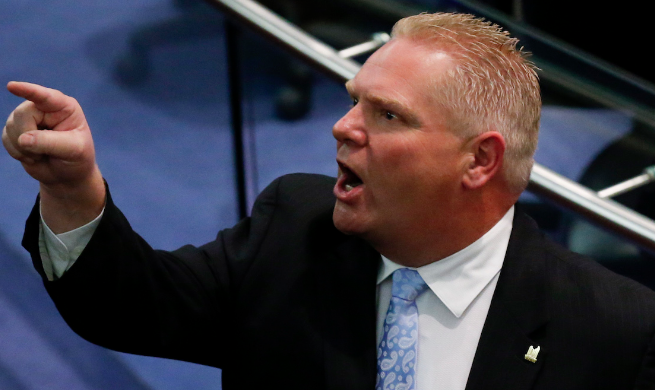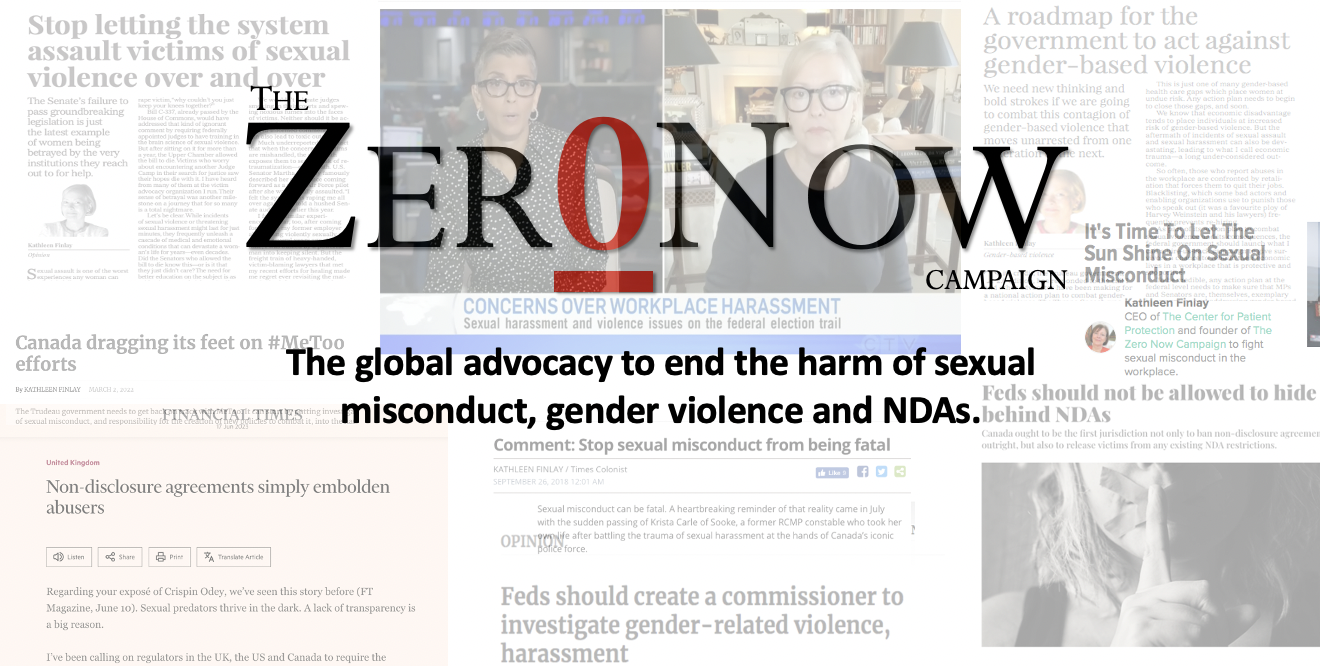In what is arguably the most regressive #MeToo administration anywhere in Canada, it will take more than shuffling a few Cabinet ministers to win the support of Ontario women.

He shuffled his cabinet. Then he said goodbye to Dean French, his controversial chief of staff. Now for the hard part in Premier Doug Ford’s battle to regain public credibility: he needs to reset his government’s #MeToo agenda.
In the past year, Ontario’s most vulnerable women, including victims of sexual violence and sexual harassment, have taken a huge hit from the Ford government. In what is arguably the most regressive #MeToo administration anywhere in Canada, programs have been slashed, commitments have been broken and women have been harmed.
In his first year, neither Ford, nor, for that matter, the female MPPs in his government, ever really got #MeToo. They were, and to this point apparently remain, totally clueless about what needs to be done to help women through the trauma of sexual violence.
As a victim of sexual assault, and the complete betrayal by the Ford government to ensure it was properly addressed, I know first-hand how devastating it is when governments fail to protect and support women in their time of greatest need.
Here are five game-changing steps to put relations between Ford and #MeToo on the right track.
1. Re-establish full funding for Ontario’s rape crisis centres.
Since the start of #MeToo, reports of sexual violence to these programs have skyrocketed. The province’s rape crisis centres are over-worked and their workers are over-stressed. The level of funding, down significantlyfrom the commitment made by the previous Liberal government, is completely inadequate.
In Waterloo, for instance, the wait time for counseling services is a staggering 18 months. But it should be no more acceptable for a victim of sexual violence to face delays in receiving care and support than it would be for a victim of gun shot or brain injury to be put on a long wait list.
2. Pass sunshine legislation to require public disclosure of sexual violence and sexual harassment statistics.
You can’t measure the progress of something you can’t see. Last year, at the strong urging of The ZeroNow Campaign I founded, the federal government amended its anti-harassment legislation to include a provision that requires disclosure of key, but anonymous, statistics on sexual misconduct incidents. The government of Manitoba has also adopted a sunshine law.
All government agencies, boards, and commissions in Ontario should be required to publicly report statistics for the number of sexual violence and sexual harassment complaints received each year, the outcome of the investigation, and the amount of any financial settlement paid.
3. Require Ontario judges to undergo training in sexual trauma before being allowed to hear such cases.
Science has proven that there are distinct neurobiological markers that come into play during times of traumatic sexual assault. These often have profound repercussions for the ability of victims to recount in a linear fashion what occurred during the attack. But the utterances of certain judges indicate complete ignorance of this evidence-based fact. The poster-judge for backward thinking on the bench is former Alberta judge Robin Camp, who infamously asked a rape victim in 2014 why she couldn’t just keep her “knees together.”
The courts should be a gleaming light for women desperately hoping to find justice. Proper trauma-informed training of judges can help deliver justice to victims, and prevent them from being re-victimized by men in black robes.
4. Appoint an ombudsman to investigate sexual violence and sexual harassment complaints at Ontario colleges and universities.
The current system, where each post-secondary institution is responsible for its own investigations, is seen by many as inadequate and under-matches the problem. One survey of Ontario campuses shows that 63 percent of the student population experienced sexual harassment. Another survey by an advocacy group at the University of Toronto found that just 13 percent of students who had experienced sexual violence reported it to the university. Students working to support victims of sexual violence at Brock University say there is a desperate need for more funding and resources. Others, some of whom have reached out to my advocacy, have expressed concerns about a “rigged system” and have voiced dismay about the mishandling of complaints.
A one-stop ombudsman, employing well-trained professionals providing a victim-focused approach, could do a lot to make our campuses safer and give the issue the prominence it deserves.
5. Hire an expert in sexual violence and sexual harassment to advise the premier on best practices.
In his first year, questions were raised about how Premier Ford’s office handled complaints by women who came forward to report sexual misconduct. The government’s image was not helped when Andrew Kimber, one of Ford’s key advisors, was forced to resign following allegations of sexual misconduct. Mr. Kimber later admitted the allegations were true.
A respected, high-level appointment of a sexual violence victims advocate to the premier’s office could help Ontario become a #MeToo leader in ensuring that the province’s ministries and agencies are following best practices to protect women, and that Premier Ford is setting the right tone. (One tries to be optimistic.)
These five initiatives could begin to put Doug Ford and his government on the right track with a significant part of the voting public. Being on the right track is a lot safer for Ontario women than the #MeToo train wreck this premier has created in his first 12 months.
RELATED
Doug Ford’s True #MeToo Colours (NOW Magazine)
